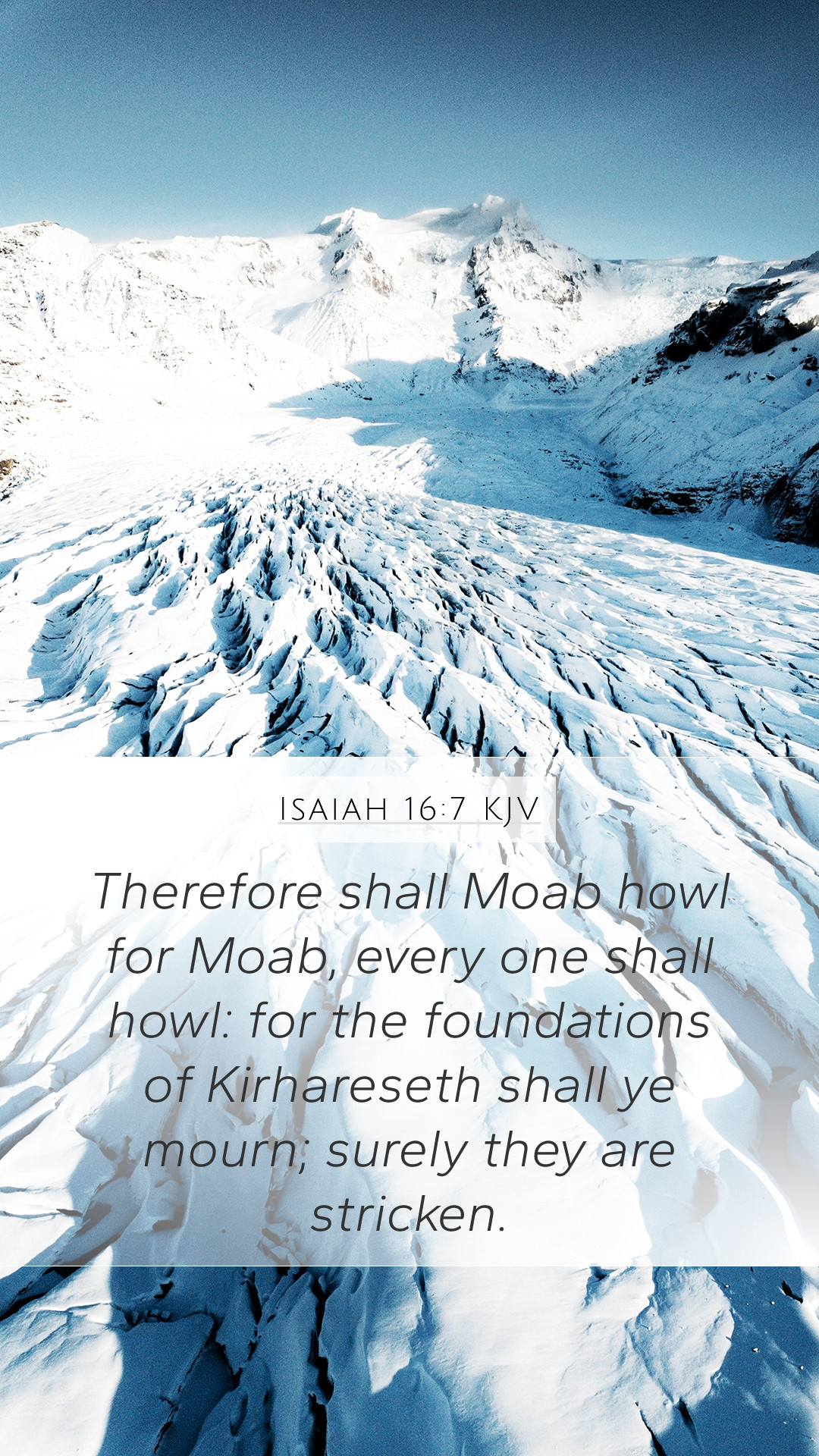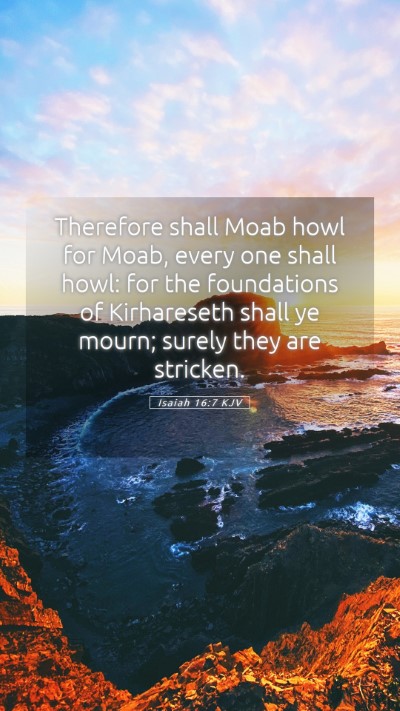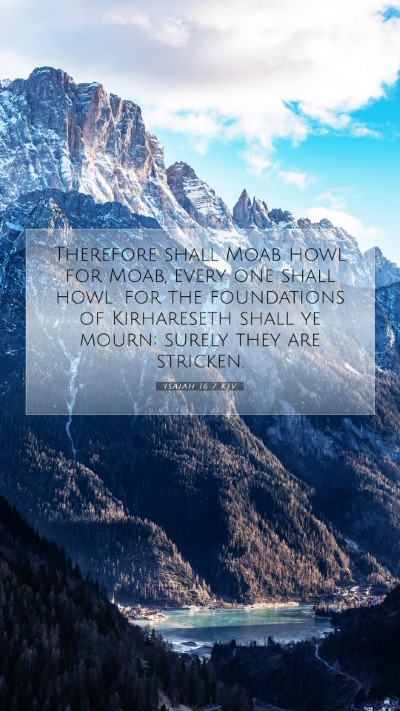Understanding Isaiah 16:7
The verse Isaiah 16:7 states:
"Therefore shall Moab howl for Moab, every one shall howl: for the foundations of Kir-hareseth shall ye mourn; surely they are stricken." (Isaiah 16:7 KJV)
Overview of the Verse
This verse speaks to the great lamentation expressed by the Moabites due to their impending destruction. The commentaries provided by notable theologians offer deeper insights into the meanings and implications behind this declaration. In this exploration, we will draw from the interpretations of Matthew Henry, Adam Clarke, and Albert Barnes to elucidate the various facets of this verse.
Biblical Context
Isaiah prophesied during a turbulent period in Israel's history when surrounding nations, including Moab, faced divine judgment. This prophecy reflects the dialectic of prophecy and lamentation where divine retribution brings sorrow not only to Israel but to neighboring nations as well.
Commentary Insights
-
Matthew Henry's Perspective:
Henry interprets this passage as a reflection of the desolation and despair that would come upon the nation of Moab. He emphasizes the emotional state of the Moabites, indicating that their howling represents a genuine cry for help in light of their inevitable fate. The mention of Kir-hareseth—a prominent city in Moab—signals a pivotal point in their suffering, showcasing the destruction of their strongholds.
-
Albert Barnes’ Insights:
Barnes highlights the dual nature of demise for Moab, focusing on both national and personal levels of grief. He suggests that the use of "howl" conveys an intense, communal celebration of mourning, indicating that all aspects of their society would experience deep sorrow. This verse also serves as a commentary on the futility of their confidence in military strength against the impending doom foretold by the prophecy.
-
Adam Clarke’s Analysis:
Clarke emphasizes the cultural and historical context of Moab's sins, attributing their downfall as a consequence of rebellion against God. He elaborates on the significance of "foundations," highlighting it as a metaphor for both physical and spiritual structures in Moab's society, which would ultimately crumble under God's judgment. Clarke’s notes reflect how this serves as a broader warning against any nation that rejects divine authority.
Theological Reflections
In synthesizing these diverse commentaries, we find that Isaiah 16:7 epitomizes the themes of lamentation, judgment, and the consequences of sin. It serves as a poignant reminder of the seriousness of divine retribution and the sorrow that comes with it. Different aspects of life—social, military, and individual—are intertwined in their grief, revealing the holistic nature of God's judgment.
Applications for Today
For contemporary readers, the message in this verse challenges individuals and nations alike to consider their ways in light of God's standards. It invites a profound reflection on personal conduct, corporate integrity, and societal values. Further, it encourages believers to seek divine alignment to avoid the fate that befell Moab.
Cross References
- Jeremiah 48:31 - "Therefore will I bewail Moab..."
- Ezekiel 25:8 - "Thus saith the Lord God; Because that Moab and Seir do say..."
- Isaiah 15:2 - "He is gone up to Bajith, and to Dibon, the high places, to weep..."
Conclusion
The profound expressions of mourning in Isaiah 16:7 thus serve as a substantial junction for understanding not only the fate of Moab but also the principles surrounding divine justice applicable throughout all eras.


